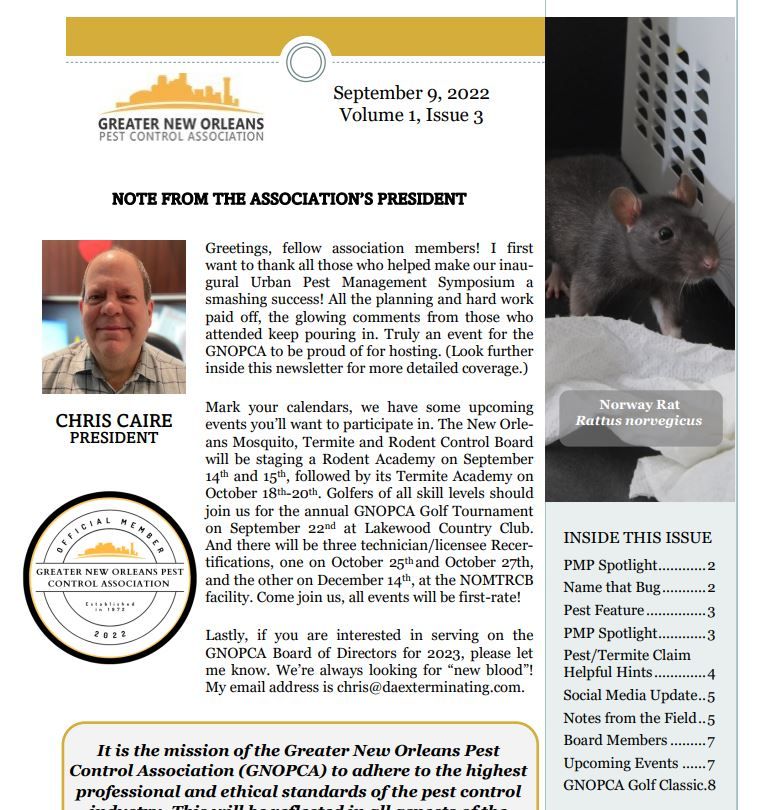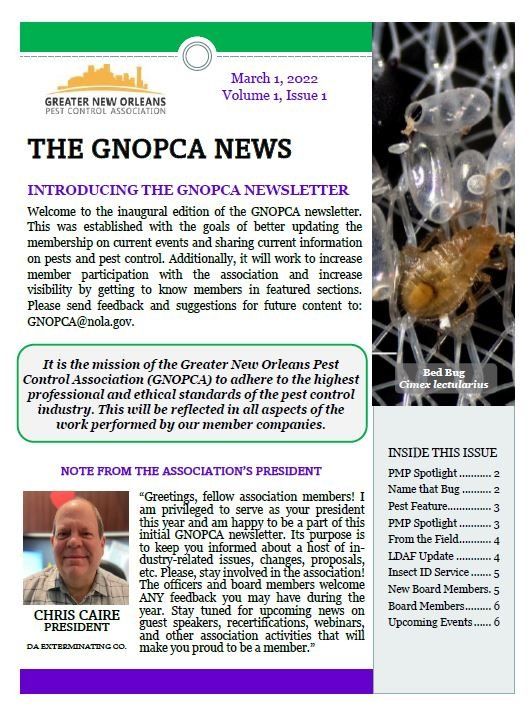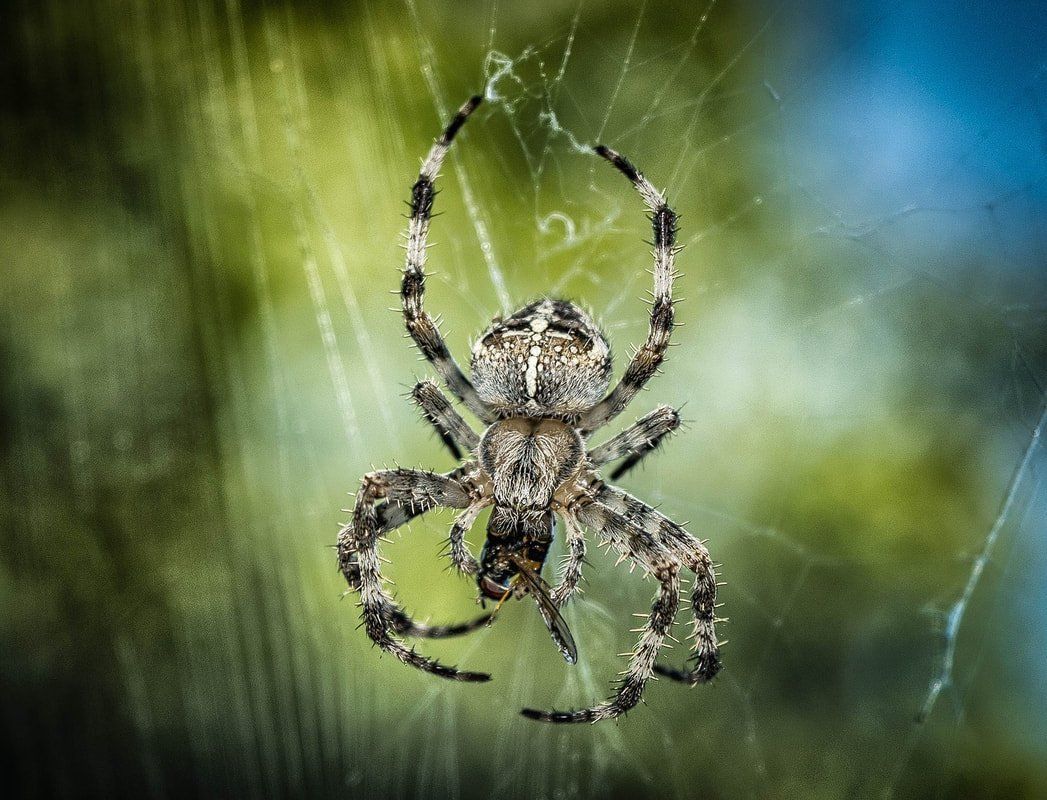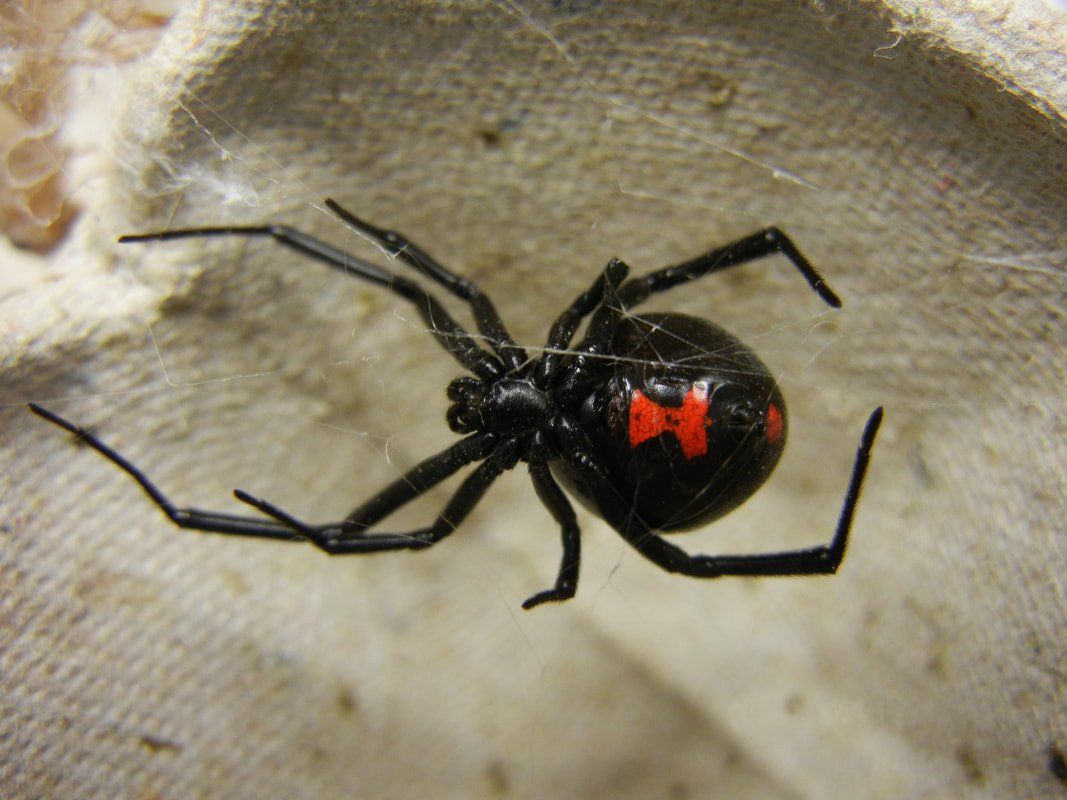DA Exterminating Co., Inc. | 4440 Wabash Street Metairie, LA 70001
📞(504) 888-4941
DA Exterminating Co. of St. Tammany, Inc. | 13433 Seymour Myers Blvd., Ste 2 Covington, LA 70433
DA Exterminating Co. of Houma, Inc. | 202 Enterprise Dr. Houma, LA 70360
Blog Layout
Paper Wasps – Not Made Of Paper!
Admin • Jul 09, 2018
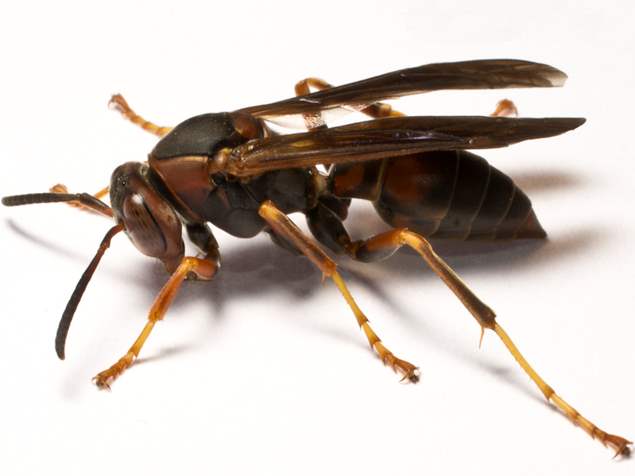
One of the most common wasps found around the home is the paper wasp. These pests range in size from 5/8” – 3/4", are brownish with yellow markings and are found throughout the United States. Paper wasps get their common name from the paper-like material out of which they make their nests. Paper wasps are sometimes called umbrella wasps, after the shape of their distinctive nests.
Habits
Paper wasps are semi-social and live in small colonies. They eat nectar and other insects including caterpillars and flies. In the autumn, inseminated females will seek places to spend the winter, and may find their way indoors, especially if there is a cathedral ceiling present.
Habitat
Paper wasps hang their comb nests from twigs and branches of trees and shrubs, porch ceilings, the tops of window and doorframes, soffits, eaves, attic rafters, deck floor joists and railings, etc.
Threats
While not an aggressive species by nature, paper wasps will sting if they are disturbed or their nest is threatened. Wasp stings are painful and can cause the same risk of allergic reaction as other insect stings.
Prevention
Paper wasps often build nests in residential yards. Before trimming shrubs or hedges, or picking fruit, check the plant for paper wasp nests. Treat wood fences and deck railings with a repellent oil to deter paper wasps from gathering cellulose from the wood. If you suspect you have a paper wasp infestation or find a wasp nest on your property, call DA Exterminating (800-650-PEST) to find out about wasp treatment. Do not attempt to remove a nest on your own, as there is a high probability you will get stung.
Call DA Exterminating if you have problems with stinging insects. 800-650-PEST.

By Lorenz Marsh
•
14 Jun, 2022
Always proud to be a member of PCT Magazine’s “Top 100” companies ( by annual revenue) in America. This is Ed, Jed and me accepting the award in Orlando the other night. Thanks to our wonderful DA team at all 3 DA branches and our loyal customers, it takes everyone to achieve success! (David Cherry, our longtime GM in Houma, left before we grabbed this photo…sorry David!) — Chris Caire, Jed, and Ed Reynolds.
By Admin
•
14 Dec, 2018
One noticeable change in the outdoors as winter approaches is the reduction of flying insects such as mosquitoes, flies, and bees.
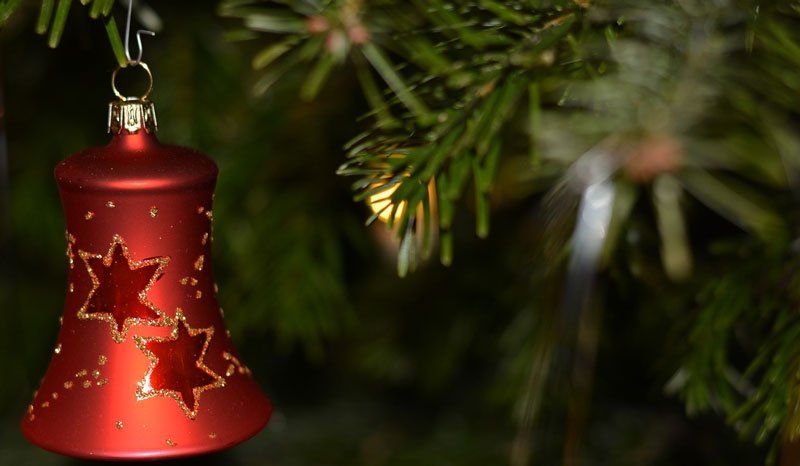
By Admin
•
06 Dec, 2018
When the holidays come to an end, it will be time to store the trees and decorations until Christmas 2019. Safeguard all of your favorite holiday decorations so they are free of pests while sitting in the attic, basement or other storage space until the holiday season comes around next year. Christmas decorations provide harborage and, in some cases, food for various kinds of pests, especially rodents. So we have assembled some decoration storage tips to prevent surprises next year when you open your decoration containers. to seal them in plastic containers if you must save these from 1) Dried berries, seeds and other natural materials are especially attractive to mice. The best idea is to seal them in plastic containers. Discard natural decorations after using each year including real gingerbread houses, candy canes and natural wreaths. 2) Cardboard can be a favorite nesting material for rodents, so don’t store artificial Christmas trees in cardboard; instead, use plastic sealable bags or containers. That goes for all other Christmas decorations. 3) Examine all decorations for any that are broken or that you won't use next year and discard them. 4) Wash linens and other fabrics and store in sealed plastic bags to prevent moisture. 5) Before loading containers into a garage, basement, attic or other storage area, examine them and clean thoroughly to remove any debris that may be harborage areas for mice. 6) Store holiday candles separately. The scent from a candle can attract unwanted guests. Placing the candles in an area that is not exposed to extreme heat (e.g., attics or sheds) will resolve this problem. Wrap candles in plastic to prevent them from melting together or transferring color in warm conditions. If you follow these tips to properly pack and store your decorations, not only will you be more organized for Christmas 2019, but you will reduce the possibility of pests trying to share next year's holiday with you! To get more information on pest control services in New Orleans, contact the experts at DA Exterminating today by calling 800-650-PEST . Wishing you and your family a pest-free New Year!
By Admin
•
14 Nov, 2018
DA Exterminating is proud to present these easy pest prevention tips to keep pests from taking up residence in your New Orleans-area home.
By Admin
•
01 Nov, 2018
The time it takes to check your home before winter arrives will pay off in preventing pest problems. Here are five things you can do!
By Admin
•
17 Sep, 2018
t’s that time of year when certain pests seek a warm place to overwinter and this usually means YOUR HOME! We’ve assembled some tips to prevent these critters from moving in with you. Vacuuming is the best way to eliminate the insects once they are inside. Before the winter months approach, seal gaps around windows and doors, including garage doors. The best time for this is during the summer after pests have left their overwintering site, and before they come back for the next season. Look for areas where pipes and electrical or cable lines enter the building. Gaps around these areas should be sealed. Look for openings around soffits, eaves, attic fans, windows and vents in the attic used for ventilation. Many times these areas are not screened, allowing overwintering pests inside. Be sure screens on windows are in good repair and have no openings. Inspect chimneys. Be sure the damper is closed when not in use, and know that if you’re dealing with a wood-burning fireplace, lighting a fire may discourage the insects from using the chimney as an entry point. Tell customers that using “bug bombs” to treat the inside of a house can backfire — they may end up with dead insects still inside the walls, which then attract secondary pests, such as carpet beetles. Concerned about Fall Invaders? Call us today. 800-650-PEST .
Contact Information
DA Exterminating Co. of St. Tammany, Inc.
13433 Seymour Myers Blvd., Ste 2 Covington, LA 70433
All pictures, images and info contained in this website do not belong to any other parties other than Thryv and/ or DA Exterminating.
Content, including images, displayed on this website is protected by copyright laws. Downloading, republication, retransmission or reproduction of content on this website is strictly prohibited. Terms of Use
| Privacy Policy

